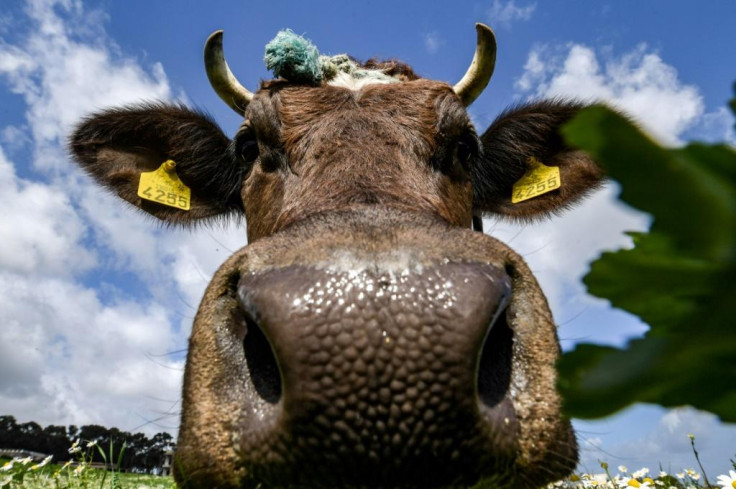Lab-Grown 'Beef Rice' Emerges as a Potential Sustainable Protein Source
Traditional beef production is notorious for its substantial environmental footprint, including deforestation, greenhouse gas emissions and extensive land and water use.

Bowls of distinctly pink-hued rice are poised to grace sustainable food menus as researchers unveil rice grains infused with beef and cow fat cells.
This experimental food creation involves coating traditional rice grains in fish gelatin and seeding them with skeletal muscle and fat stem cells, which are then cultivated in the laboratory.
Traditional beef production is notorious for its substantial environmental footprint, including deforestation, greenhouse gas emissions and extensive land and water use.
Lab-grown or cultured meat has emerged as a promising solution to mitigate these environmental challenges.
However, 'beef rice' takes this concept a step further by combining lab-grown beef cells with rice, offering a unique and versatile protein source.
After nine to eleven days of culturing the muscle, fat and gelatin-coated rice, the grains are imbued with meat and fat, resulting in a potentially nutritious and flavorful food product.
Professor Jinkee Hong, leading the research at Yonsei University in South Korea, personally cooked and tasted the beef-cultured rice.
He envisions this innovative approach as a more affordable protein source compared to traditional beef, with a significantly reduced carbon footprint.
The rice, when cooked, maintains its traditional appearance but carries a distinctive blend of aromas, including a subtle nuttiness and umami characteristic of meat.
While not replicating the exact taste of beef, it offers a unique and pleasant flavour experience, according to Hong.
The hybrid rice, predominantly a carbohydrate with smaller proportions of protein, fat, vitamins and minerals, is proposed as a complete meal by integrating animal cells.
This hybrid, although more brittle than traditional rice, contains 8 per cent more protein and 7 per cent more fat.
Different ratios of muscle cells and animal fat impart varying odours, with beef and almond-like scents associated with more muscle cells and cream, butter and coconut oil aromas tied to higher fat content.
The researchers argue that hybrid rice could enhance food production sustainability, with significantly lower carbon emissions compared to beef protein.
The introduction of 'beef rice' aligns with the growing demand for sustainable protein sources as consumers become increasingly conscious of the environmental impact of their dietary choices.
The food industry has witnessed a surge in interest in plant-based and alternative protein products in recent years, reflecting a shift towards more environmentally friendly and ethical food options.
Beyond its environmental merits, 'beef rice' is designed to be a practical and convenient protein source for consumers.
The creators highlight its versatility in various dishes, from stir-fries to casseroles, providing a seamless integration into a wide range of culinary preferences.
The product aims to appeal not only to those seeking sustainable alternatives but also to individuals who appreciate the familiar taste and texture of traditional beef in their meals.
Their calculations suggest that producing 100g of protein from hybrid rice would release less than 6.27kg of carbon dioxide, in contrast to nearly 50kg of beef protein.
Moreover, they estimate hybrid rice to be more cost-effective, with a projected price of £1.80 per kg compared to £12 per kg for beef.
Beyond sustainability and affordability, the researchers anticipate hybrid rice could address emergency food supplies in famine-stricken regions and serve as rations for astronauts and the military.
The initial batches of hybrid rice involved muscle and fat cells from Hanwoo cattle, but the team is exploring sustainable cell supplies that don't require additional animals.
While some experts express scepticism about the impact of rice due to its low percentage of cultivated beef cells, others see promise in its potential to provide animal nutrients with significantly lower greenhouse gas emissions and reduced costs, offering a pathway to healthier and more climate-friendly diets in the future.
However, the introduction of lab-grown 'beef rice' is not without challenges and considerations.
Consumer acceptance, regulatory approvals and scalability of production are key factors that will influence the product's success in the market.
Overcoming the 'novelty' stigma associated with lab-grown meats and ensuring competitive pricing will be critical in gaining widespread consumer adoption.
As environmental consciousness grows and dietary preferences evolve, innovative solutions like 'beef rice' could play a pivotal role in shaping a more sustainable and ethical future for the food industry.
© Copyright IBTimes 2025. All rights reserved.






















